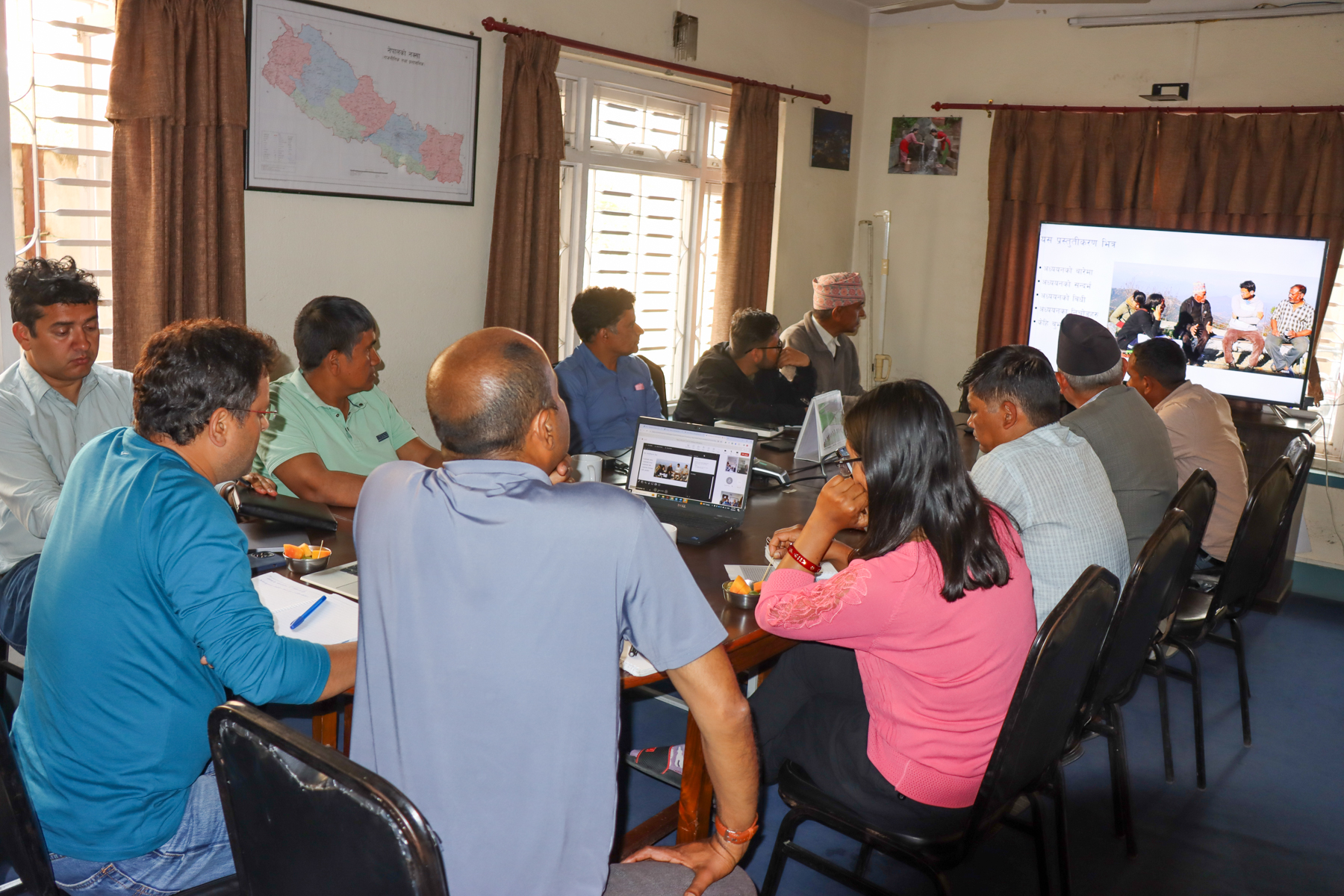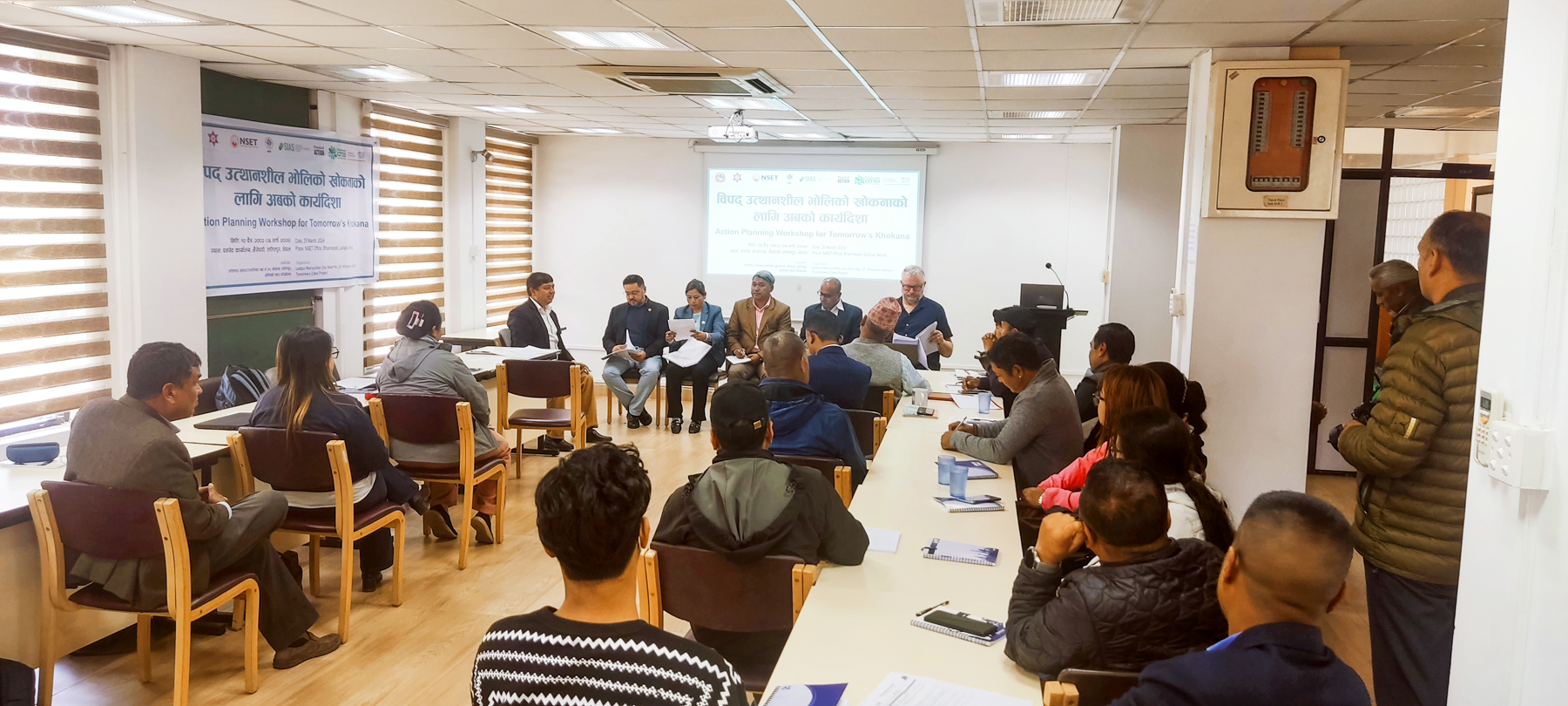Er. Ganesh Shah, a former Environment, Science and Technology Minister of Nepal, delivered the seminar on ”Climate and Environmental policy in Nepal: Key challenges and experiences”. The Policy Discussion Series XXII was organized on 31 August 2014 (3:00 PM) at Martin Chautari.
About the Series: The Policy Discussion Series is an initiative of Martin Chautari and the Southasia Institute of Advanced Studies (SIAS) under the aegis of Nepal Policy Research Network (NPRN). It aims to nurture a “community of practice” around public policy in Nepal, by bringing together experienced and emerging public policy scholars and practitioners to share their research insights and experiences with a larger audience. With this Series, we seek to stimulate debates on contemporary public policy issues, policy research methodologies, and institutions that create policy knowledge. The Series is also a forum for the sharing of findings of policy‐related research.
Climate and Environmental policy in Nepal: Key challenges and experiences
Abstract
This presentation aims to provide an overview of the existing policies on environmental and climate change issues, their challenges and gaps in enforcement and way forward. Environmental protection and addressing climate change impacts consists a growing concern. Nepal is no stranger to the consequences of the environmental degradation and negative impacts of climate change. Likewise, Nepal is also a signatory to the number of international agreements aims to protect the mother Earth and address environmental degradation.
In Nepal, the emergence of environmental concerns in national process came together with the initiation of our national planning process; the first Five year Plan (1956 – 1961) mentioned about natural resource utilization and enacted Forest Nationalization Act 1957. Together with the growing concerns at global level during the Earth Summit 1992, in the same year Nepal’s 8th five-year plan (1992-1997) also initiated development of environment related policies. Later, the foundation of the legal structure for environmental assessment and mitigation in Nepal was laid by the Environmental Protection Act 2053 (1996) and the subsequent Environmental Protection Rules 2054 (1997). In addition, the climate change policy 2011 provides clear milestone in addressing the growing negative impacts of climate change.
However, there still remain gaps in addressing several environmental concerns at the national level including the enforcement of the available policy measures. Given the growing need for trained environmental policy practitioners to take this concerns forward, graduate schools in Nepal have also begun to offer specialized professional degrees in environmental policy and climate change studies, which in a long run provide hopes in addressing these concerns.
Ganesh Shah is the ex-Minister for Environment, Science and Technology. He is a Mechanical Engineer by profession and has received his M-Tech (Technical Engineering) from Patrice Lumumba Peoples’ Friendship University in 1973. Together with his political career, Mr. Shah is advocate of the environmental and climate change issues in Nepal and inspiration to the youth working on these issues.
Topic:‘‘Climate and Environmental Policy in Nepal: Key Challenges and Experiences”.
By: Ganesh Shah, a former Environment Minister of Nepal
Date: Sunday, 31 August, 2014 (3:00 PM)
Venue: Martin Chautari Seminar Hall, Thapathali




